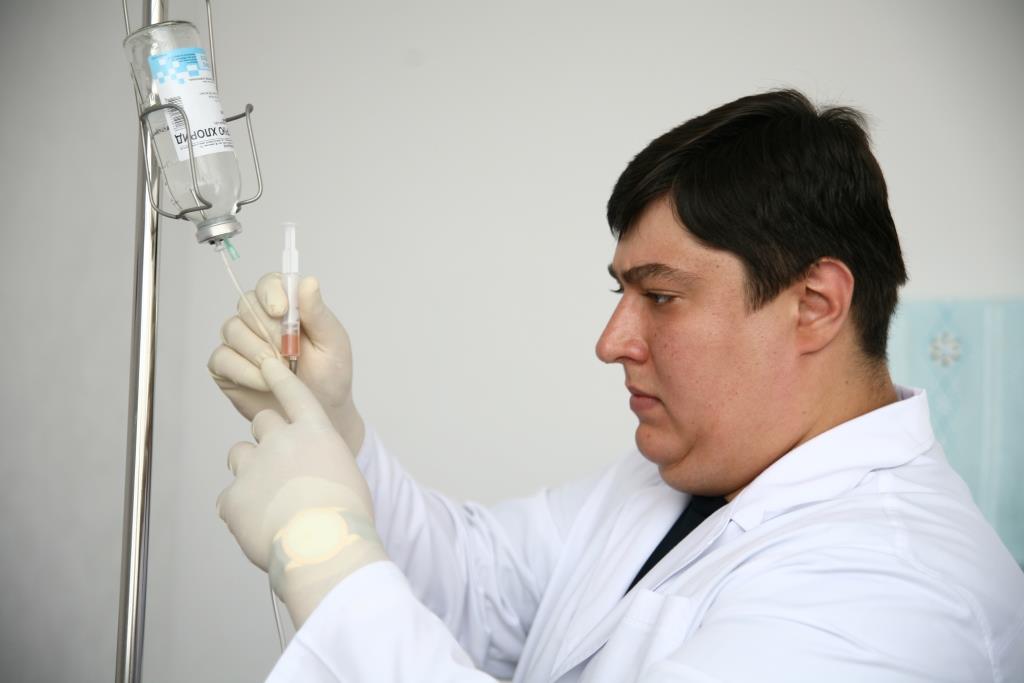ALS Treatment with using stem cells
 |
What is amyotrophic lateral sclerosis?
Amyotrophic lateral sclerosis or ALS is a neurological disease during which the nerve cells of spinal cord die and this affects patient’s ability to move and breathe. The disease also has name Lou Gehrig’s disease after the name of baseball player, who was diagnosed with it in 1939. Previously it was also known as Charcot disease because Jean-Martin Charcot, the French neurologist, was the first who described this disease.
|
Who is affected
The disease develops gradually in patients from 40 to 70 years old. At this more men are affected than women. Progressive loss of functions, necessary for physical health, results eventually in lethal outcome. The person loses motor and breathing functions. Over 90% of cases do not have particular genetic cause, while 5-10% of cases are caused by genetic factor.
Development of disease
As lower motor neurons are lost the person experiences weakness of muscles that progresses and brings to atrophy. As far as prefrontal neurons are concerned, their loss brings to cognitive impairment, altered awareness and maladaptive social behavior.
In its classical form the disease begins as dysfunction in some part of the body and then it slowly spreads throughout the body. Breathing failure causes death that usually occur about 3 years later in average. 4% of patients can live more than 10 years. However, there are exclusions. Famous scientist Stephen Hawking, diagnosed with ASL, has been living with it for half a century already.
Symptoms of amyotrophic lateral sclerosis
|
The symptoms of amyotrophic lateral sclerosis comprise the following conditions:
· Weakness in limbs
· Clumsiness
· Uncontrolled limbs
· Twitches of muscles
· Problems with swallowing, speaking, drooling and breathing
· Uncontrolled emotions
· Fatigue
· Painful sensations are usually observed on the latest stages of ALS
|
 |
Research of ALS
It was noticed that accumulation of protein is found in spinal cord in patients with ALS. The progress in treatment of ALR was observed when new mechanisms were discovered that can be targeted during treatment. The disease is researched by stem cell specialists who look for ways to get better understanding of mechanisms underlying amyotrophic lateral sclerosis. But even this lethal disease can be treatable. Long years of research, which have been conducted at various institutions revealed that disease can progress slowly after neural stem cells are transplanted to the person, breathing was enhanced and motor functions also performed better. The research was conducted on mice and as a result of the studies the mice lived about 4 times longer. Due to the research work new light was put on detrimental roles of non-neuronal cells in causing motor neuron death. If these events are studied then more effective therapy for ALS treatment can be found. The damaged stem cells were not replaced by neural stem cells in the mice diagnosed with amyotrophic lateral sclerosis. Treated patients are examined and enhanced respiratory function is observed in them. Motor performance gets better.
Stem cell therapy for ALS in UCTC
Confirmed ALS diagnosis (amyotrophic lateral sclerosis) or motor neuron disease is the absolute indication for fetal stem cell therapy. UNIQUE CELL TREATMENT CLINIC has long-standing experience of treating ALS patients even in the cases when all the other known methods don't bring positive results. Our treatment is effective in the progressing course of the disease, with such complications as respiratory failure, up to artificial lung ventilation, dysphagia and presence of gastric stoma. Our fetal stem cell treatment allows to prolong lives of patients with complicated ALS (in some cases by more than six years), improve their life quality, partly restore working capacity and maintain it at the maximum level. Especially positive results of the treatment are achieved if the patient begins fetal stem cell treatment at early stages of disease, which allows to reach effectiveness of 67 percent.
After administration of suspension containing fetal stem cells, ALS patients note reduced weakness, decrease in intensity of fasciculations and spasticity, improvement of appetite and mood. After transplantation, decrease in muscular rigidy, increase of motion volume in limbs, normalization of reflexes, decrease in the number of fasciculation zones, better tolerability of daily chores, improvement of swallowing, articulation and clarity in pronunciation of words have been observed in 34% of patients.
Stable positive clinical effect after the treatment persists for four to eight months on average. Most patients need to repeat the treatment course within a year for maintaining the attained positive results. In some cases patients need periodic courses of fetal stem cell treatment every 1.5 – 2 years. The treatment course for ALS and ulcerative colitis at UNIQUE CELL TREATMENT CLINIC, as a rule, takes 2 days.